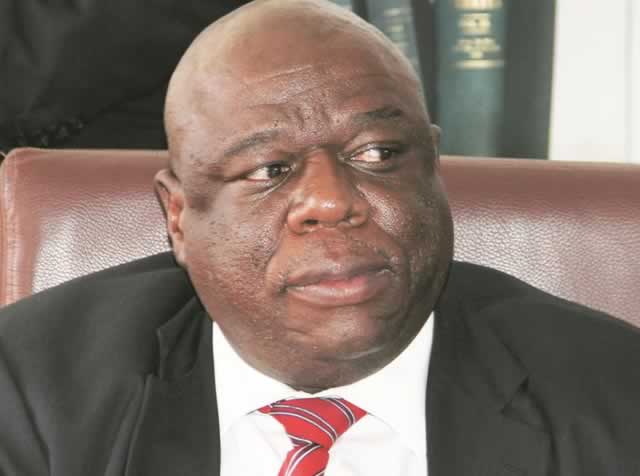Labour Bill: Parly recalled

Farirai Machivenyika Senior Reporter
Parliament is expected to pass the Labour Amendment Bill next week after President Mugabe summoned parliamentarians from their recess to consider amendments to the Labour Act.
The Bill is expected to amend the Labour Act and remove common law provisions that have been used by employers to unilaterally dismiss thousands of workers on notice, sending them home empty-handed.
Clerk of Parliament Mr Kennedy Chokuda announced the recall of parliamentarians in a statement yesterday.
“The Clerk of Parliament Mr Chokuda, would like to inform all Members of Parliament that pursuant to Section 110 (2) (c) of the Constitution of Zimbabwe, His Excellency the President, Cde R.G Mugabe, has summoned the National Assembly to sit on the 18th (Tuesday) of August 2015 and the Senate on the 20th of August 2015.
“The summoning of the National Assembly and the Senate is meant to enable Parliament to consider the Labour Amendment Bill, HB 7 of 2015 and any related business, which may arise. Thus all Members of the National Assembly must be at Parliament on Tuesday, 18 August, 2015. All Senators must be at Parliament on the 20th of August, 2015,” he said.
Parliament had been on its annual recess and was expected to resume sitting on September 1.
Under the proposed amendments to the Labour Act, employers will only be able to terminate a contract of employment on three grounds, namely: disciplinary reasons in terms of the code of conduct; if the employer and the employee agree; and/or if the employee has been engaged on a fixed-term of contract for a specified task.
Employers will, however, have to go through the normal retrenchment exercise if none of the above three scenarios apply.
The Bill will streamline the current process of retrenchment, with works councils and employment councils having to negotiate compensation packages that will apply to all future retrenchments in the enterprise or the industry concerned.
The Bill also gives a default of at least one month’s pay for each year of service although the Labour Minister must consult the Retrenchment Board before registering an agreement that contains only this default.
The Retrenchment Board will fix the minimum package in cases where there are no works or employment councils.
Employers who cite inability to pay under these laid down procedures, in the event of retrenchment, can apply for exemption to the relevant employment council, which will have 14 days to decide the matter taking into account ability to pay, relocation and the security of the remaining staff.
The amendment also retains the present procedures of notice and negotiation to find other solutions to retrenchment, but if there is no agreement, then employers wishing to retrench must apply to their employment council, which will have 30 days to determine the matters arising from the disagreement for special measures to avoid retrenchment.
Another major proposed amendment is that employees on fixed contracts will have the same benefits as those on contracts without limits after they have served continuously for a period laid down by the employment council, or in its absence, by the Labour Minister.
Labour unions argue that at least 20 000 people have been fired since July 17 when the Supreme Court passed the judgement.
Meanwhile, Unilever Zimbabwe has disputed figures obtained from labour unions which indicated that it had fired some of its employees using the Supreme Court ruling.
“Following the publication of the above mentioned newspaper article in The Herald of 5 August 2015, Unilever would like to advise that the reference to 186 of its employees being retrenched is erroneous,” said communications manager Kudzai Makuni.
“Unilever Zimbabwe currently employees 187 full time employees, all of whom continue to contribute to the operations of the business locally and regionally,” Makuni said.











Comments